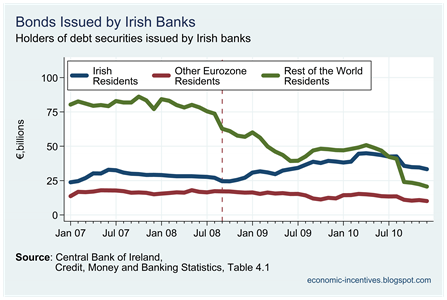Thanks for this. I'm trying to get my head around the impacts of defaulting. To understand those impacts, I have to understand the basis and the law around their agreement.
So my real question is 'who says that senior bondholders rank with depositors'? Is this a matter of law, or a matter of the agreement between the bank and the bondholder?
The bond documentation will usually state where the investor ranks in the capital structure i.e. senior unsecured creditor or subordinated creditor. The pricing of the bond reflects this difference. If I buy a senior bond, I become a senior unsecured creditor of that institution. If I put my money on deposit (ignoring guarantees), I become a senior unsecured creditor of the bank. That is why they say that senior bondholders and depositors rank pari passu in the event of liquidation.
The law needs to be looked at and a bank resolution scheme needs to be introduced but it's not easy. If you make senior bond investors structually subordinate to depositors, then the cost of funding for the banks will rise. Not necessarily a bad thing but people need to accept the days of cheap banking are over not just for loans but for everyday banking services. (and they have been cheap compared to other European Countries).
